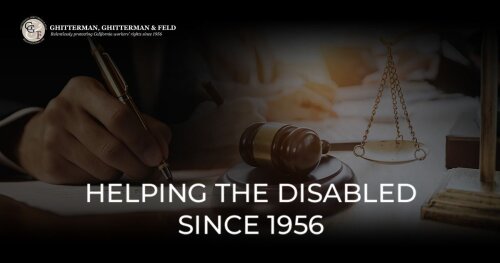Best Accidents & Injuries Lawyers in Vermont
Share your needs with us, get contacted by law firms.
Free. Takes 2 min.
Or refine your search by selecting a city:
List of the best lawyers in Vermont, United States
United States Accidents & Injuries Legal Articles
Browse our 1 legal article about Accidents & Injuries in United States written by expert lawyers.
- What to Do After a Serious Car Accident in the US: A Legal Step-by-Step Guide
- Call 911, get medical help, and do not admit fault. Photograph the scene, vehicles, and your injuries, and get witness names and the officer's report number. Report the crash to your insurer quickly. In no-fault states, PIP deadlines are short (e.g., Florida requires initial treatment within 14 days; New York... Read more →
About Accidents & Injuries Law in Vermont, United States
Accidents and injuries law in Vermont covers situations where individuals are harmed due to the actions or negligence of others. Common cases involve motor vehicle accidents, slip and falls, workplace injuries, medical malpractice, and harm caused by defective products. These laws are designed to help injured individuals seek compensation for medical expenses, lost wages, pain and suffering, and other damages resulting from an accident. Vermont follows specific rules and timeframes regarding how and when you can pursue a claim for compensation.
Why You May Need a Lawyer
Seeking the guidance of a lawyer can be crucial when dealing with accidents and injuries for various reasons. Insurance companies often try to minimize payouts, leading to unfair settlements. Legal representation can help you collect evidence, negotiate settlements, and present a strong case, whether in or out of court. People often need lawyers for:
- Severe or permanent injuries
- Disputed liability or fault
- Complex medical or legal issues
- Unfair insurance compensation offers
- Work-related injuries with disputed workers' compensation claims
- Wrongful death claims
- Accidents involving multiple parties or commercial vehicles
Local Laws Overview
Some important Vermont-specific laws and rules affect accident and injury claims:
- Vermont follows a modified comparative negligence rule. If you are 50 percent or more at fault, you cannot recover damages. If you are less than 50 percent at fault, your compensation may be reduced by your percentage of fault.
- The statute of limitations for most personal injury and car accident claims in Vermont is three years from the date of the accident. For certain claims, such as those involving wrongful death, the period may differ.
- Vermont law requires drivers to carry liability insurance. Minimum coverage levels are set by state law, but coverage beyond these minimums can protect you further.
- Workers’ compensation laws require employers to provide insurance for job-related injuries. Reporting requirements and deadlines apply to these claims.
It is important to be aware that failing to file a claim within the statute of limitations period may prevent you from recovering any compensation.
Frequently Asked Questions
What should I do immediately after an accident in Vermont?
Call emergency services if necessary, get medical attention, exchange information with relevant parties, take photos if possible, and report the incident to authorities. It is also wise to notify your insurance company promptly.
Do I have to report all accidents to the police?
Vermont law requires that motor vehicle accidents resulting in injury, death, or significant property damage be reported to the police.
How long do I have to file a lawsuit for personal injury in Vermont?
You generally have three years from the date of the accident to file a personal injury lawsuit, but certain exceptions can apply.
What if I am partly at fault for the accident?
Under Vermont’s modified comparative negligence rule, you may recover damages if you are less than 50 percent at fault. However, your recovery amount will be reduced by your percentage of fault.
Can I seek compensation if I was injured at work?
Most employees are covered by workers’ compensation, which can provide benefits for medical expenses and lost wages. It is critical to report workplace injuries promptly and follow your employer’s claim process.
Will my case go to court?
Many personal injury claims are resolved through settlement with insurance companies before reaching trial. However, if no fair agreement is reached, a lawsuit may be necessary.
How are pain and suffering calculated?
Pain and suffering compensation is typically determined by the severity and impact of your injuries on your life. There is no set formula, and it often depends on negotiation or a jury’s assessment.
What documentation do I need to support my claim?
Useful documents include medical records, accident reports, photographs, witness statements, and correspondence with insurance companies.
How much does a personal injury lawyer cost?
Most Vermont personal injury lawyers work on a contingency fee basis, meaning they only get paid if you win your case. The standard fee is a percentage of your settlement or judgment.
What if the at-fault driver is uninsured?
You may be able to file a claim through your own uninsured or underinsured motorist coverage, if you have it. Your lawyer can help you explore your options in these situations.
Additional Resources
If you need more information or assistance with an accident or injury, consider these Vermont resources:
- Vermont Judiciary - For court forms and information about court procedures
- Vermont Department of Financial Regulation - For questions about insurance regulations and compliance
- Vermont Department of Labor - For workers’ compensation and workplace injury resources
- Vermont Bar Association - For lawyer referral services
- Local hospitals and trauma centers - For medical evaluations and documentation
Next Steps
If you have been injured in an accident in Vermont and believe you may need legal help, consider taking the following steps:
- Seek prompt medical attention for your injuries and request all records.
- Keep detailed notes and records about the accident, your injuries, and your expenses.
- Contact a Vermont-licensed personal injury attorney for a consultation. Many offer free initial evaluations.
- Do not discuss your injury or sign documents from insurance companies before receiving legal advice.
- File any necessary claims or reports with authorities, your employer, or your insurance provider within the required deadlines.
A lawyer can guide you through the legal process, help protect your rights, and improve your chances of obtaining fair compensation for your injuries and losses.
Lawzana helps you find the best lawyers and law firms in Vermont through a curated and pre-screened list of qualified legal professionals. Our platform offers rankings and detailed profiles of attorneys and law firms, allowing you to compare based on practice areas, including Accidents & Injuries, experience, and client feedback.
Each profile includes a description of the firm's areas of practice, client reviews, team members and partners, year of establishment, spoken languages, office locations, contact information, social media presence, and any published articles or resources. Most firms on our platform speak English and are experienced in both local and international legal matters.
Get a quote from top-rated law firms in Vermont, United States — quickly, securely, and without unnecessary hassle.
Disclaimer:
The information provided on this page is for general informational purposes only and does not constitute legal advice. While we strive to ensure the accuracy and relevance of the content, legal information may change over time, and interpretations of the law can vary. You should always consult with a qualified legal professional for advice specific to your situation.
We disclaim all liability for actions taken or not taken based on the content of this page. If you believe any information is incorrect or outdated, please contact us, and we will review and update it where appropriate.
Browse accidents & injuries law firms by service in Vermont, United States
Vermont, United States Attorneys in related practice areas.
Browse accidents & injuries law firms by city in Vermont
Refine your search by selecting a city.










